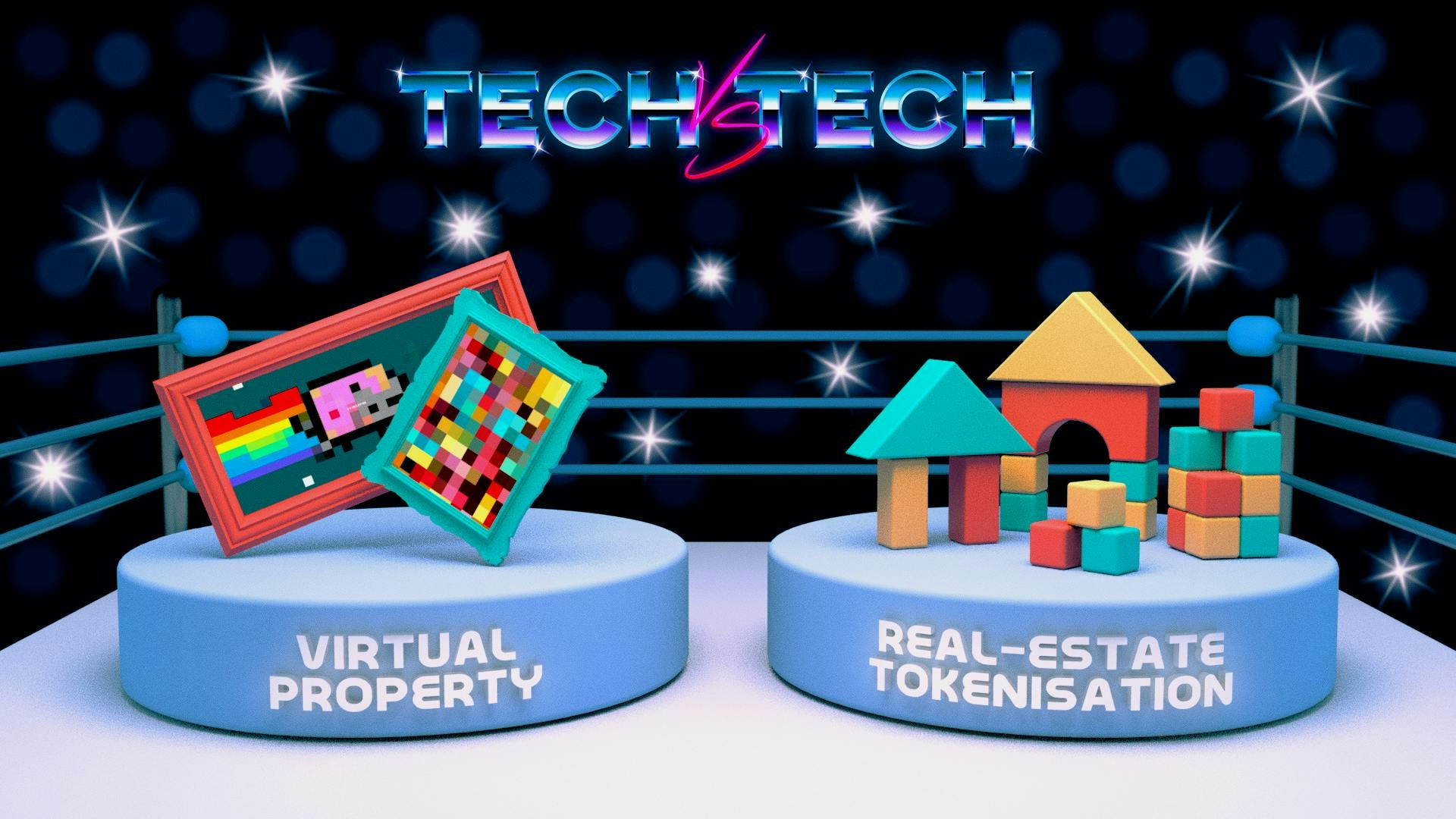Tech vs. Tech: Real estate NFTs vs. real estate tokenisation

Born in a middle class family, from an early age I felt that owning a house, or at least an apartment, was a life goal.
Real estate represented social proof of success. More than that, it was a financial safety net—an asset that could be sold in case of hardship, or for building wealth.
No one said it would likely involve a 25-year mortgage, and the huge expenses related to upkeep of a property.
Recent news about virtual property selling for hundreds of thousands dollars made me rethink this whole real estate “life hack,” and the concept of ownership. Could buying virtual space provide the ownership status some crave without having to rely on actual tangible assets (stocks being exceptional, as they’re not an option for everybody) … and the risk of further indebtedness that goes with it?
To answer that, let’s consider two emerging concepts, both reliant on blockchain technology, that could fulfill the desire for stable securities ownership while remaining virtual. This week’s Tech vs. Tech is between NFT-based virtual property (real estate NFTs) and—drumroll, please!—real estate tokenisation.
The Technologies
Virtual property, real estate NFTs, or tradable 3D content has a long history in internet terms. In the early 2000s, Second Life was among the first platforms to let users buy customisable virtual islands with digital currency, the “Linden Dollar,” exchangeable for “real-world” money. Since 2018, the concept has blossomed alongside the development of non-fungible tokens. NFTs enable people to certify that a single digital file is unique, thus creating scarcity (and an opportunity for ownership) in a space where an image, for example, can be replicated infinitely.
“NFT” can refer to either the certificate of ownership inherent to it, and the blockchain-based virtual asset attached to it. Among such assets, virtual land has been sold, sometimes for millions of dollars, on platforms like Decentraland or Cryptovoxels.
Real estate tokenisation is similar to NFT-based virtual property in the sense that it grants ownership of space. It differs in the sense that it is actually attached to tangible assets—real properties, such as apartment buildings or parcels of land. Tokenisation is about dividing those seemingly indivisible assets into virtual shares, called security tokens. The shares are secured via blockchain and therefore become tradable.
The concept is similar to stock exchanges—but rather than investing in parts of a company, crypto-enthusiasts can invest in parts of a building.
Current uses
Interviews from our Virtual Economy project signal that, at this stage, NFT-based virtual properties are mainly traded by four different profiles:
- Investors seeking to diversify their portfolios.
- Companies and artists experimenting with this new technology, and looking to do business with it.
- Individuals interested in a custom virtual space they can call their own, with the possibility that they make a little revenue later, as in virtual worlds like Minecraft or Second Life. In May, the least expensive parcel listed on OpenSea marketplace was around $1.000—not quite a penny stock, but not entirely unaffordable either.
Real estate tokenisation is more niche at this stage. Crypto-enthusiast investors are currently the main users. But it is surprisingly possible to find shares of virtual properties starting around $50—far from the extravagant costs that adorn headlines about NFTs. This amount is small enough to elicit interest from ordinary people, theoretically democratising access to the benefit of ownership (minus the possibility of actually living inside the property).

And the winner is...
In my view, both concepts are interesting from an individual investor standpoint, but real estate tokenisation is more likely to fulfil the need for securities ownership in the near future, and potentially amongst more people.
Don’t get me wrong; I believe NFT-based assets provide a sense of “tangible” ownership, particularly when NFTs act as virtual “twins” of real-life objects. Nike is a good example: The company holds a patent for virtual sneakers that are replicas of real ones and, thus, acts as a kind of virtual certificate of ownership.
But security comes from the comfort of owning something people can relate to, and that feels like a stable investment in a world where change happens at an unpredictable pace. Right now, exclusively virtual property is seen either as a gaming mechanism or a cryptocurrency-like bubble. While shares in tokenisation are intangible, the link to something tangible, like a building, coupled with non-alarming entry costs, facilitates a smooth transition from traditional to virtual ownership.
Security is also about reliance on a legal framework and recognised authorities. Security tokens—the technology behind tokenisation—are often already regulated by local jurisdictions, or soon to be. In 2019, the Parliament of Lichtenstein passed a bill that allows every possible asset, including real estate, bonds and securities, to be tokenised, digitalised and listed on cryptocurrency exchanges.
At this stage, however, neither technology provides the sense of “settled” social achievement that typically accompanies home ownership. We must wait and see if new consumption behaviours since the pandemic, and the development of the virtual economy, change this vision in the future, the same way the proliferation of social media and smartphone access de-stigmatised online dating.
Tech vs. Tech is a regular L’Atelier Insights feature that pits two up-and-coming technologies or trends against each other, using a single lynchpin… like “stable” securities ownership.
01 Jul 2021
-
Aurore Geraud
Illustrations by Debarpan Das.
DATA-DRIVEN TECH & SOCIAL TRENDS. DISCOVERED WEEKLY. DELIVERED TO YOUR INBOX.
02/03
Related Insights
03/03
L’Atelier is a data intelligence company based in Paris.
We use advanced machine learning and generative AI to identify emerging technologies and analyse their impact on countries, companies, and capital.


